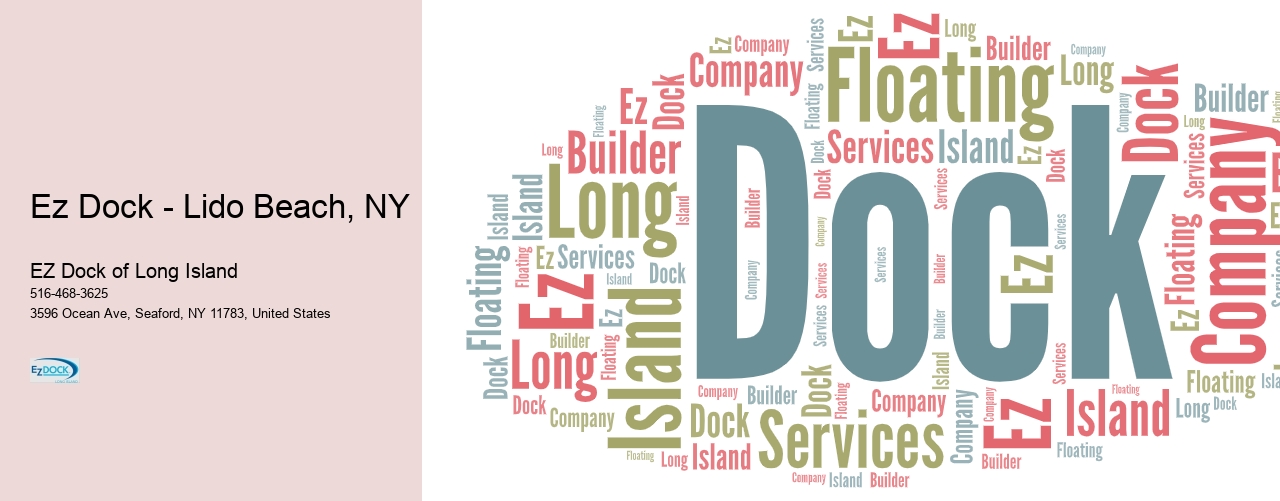

For over 15 years, EZ Dock of Long Island has delivered top-tier floating dock solutions to Long Island’s waterfront communities. Specializing in modular docks that grow with your needs, we offer PWC ports, boat lifts, kayak launches, and more. Whether for residential, government, or commercial use, our versatile systems help you make the most of your time on the water.
Floating docks are a popular solution for many waterfront properties, providing convenient access to water for boating and other recreational activities. However, their presence can have various effects on the local wildlife that inhabit these aquatic environments.
The installation of floating docks can lead to significant changes in the local habitat. By casting shadows over the water, they can affect the growth of aquatic plants that require sunlight, potentially disrupting the food chain. Additionally, docks can alter current patterns and sedimentation processes, which may impact fish spawning grounds and benthic communities.
On a positive note, floating docks can sometimes provide new habitats for certain species. The underside of a dock can serve as a protective shelter for fish and other marine life against predators. It can also be an anchor point for mollusks and a breeding ground for periphyton, which is essential for young aquatic species' diets.
The human activity associated with docks often leads to disturbances in wildlife behavior. Noise from boats and foot traffic can stress local fauna, causing them to flee their natural habitats. This disruption can lead to reduced nesting or feeding opportunities and may even result in decreased reproductive success among sensitive species.
Maintenance of floating docks often involves the use of preservatives and anti-fouling agents that contain harmful chemicals such as copper or zinc. These substances can leach into the water over time, posing serious threats to aquatic life through toxicity or by altering chemical balances within the ecosystem.
Bird populations might be impacted by floating docks both negatively and positively. While some birds might utilize these structures as resting or nesting sites, others could experience loss of habitat if vegetation they depend on is removed during dock installation or overshadowed by the dock itself.
To mitigate adverse effects on wildlife, Floating Dock Company designs incorporate environmentally friendly materials and construction methods that minimize habitat disruption. They also advise on best practices during installation to ensure preservation of aquatic environments while still providing high-quality infrastructure.
Ongoing monitoring is crucial in understanding how floating docks influence local ecosystems over time. Regular assessments help identify any negative impacts early on so that corrective measures may be implemented swiftly by dock owners or environmental bodies to protect local wildlife populations effectively.
By considering these factors during design, installation, maintenance, and usage phases of floating docks' life cycles, companies like Floating Dock Company contribute towards balancing human interests with environmental stewardship.
View Floating Dock Builder-Nassau County in a full screen map
| Service Areas | Atlantic Beach, NY; Baldwin, NY; Bayville, NY; Bellmore, NY; Cedarhurst, NY; Centre Island, NY; East Rockaway, NY; Freeport, NY; Glen Cove, NY; Great Neck, NY; Harbor Isle, NY; Hewlett Neck & Hewlett Harbor, NY; Inwood, NY; Island Park, NY; Kings Point, NY; Lawrence, NY; Lattingtown, NY; Lido Beach, NY; Locust Valley, NY; Long Beach, NY; Massapequa, NY; Massapequa Park, NY; Merrick, NY; Oceanside, NY; Oyster Bay, NY; Oyster Bay Cove, NY; Point Lookout, NY; Port Washington, NY; Sands Point, NY; Sea Cliff, NY; Seaford, NY; Wantagh, NY; Woodmere, NY |
| Entity | Definition |
|---|---|
| Boat Dock | A structure that provides a place for boats to be secured when not in use. |
| Residential Floating Dock | A floating dock system designed for private residential use, often for recreational purposes. |
| Commercial Floating Dock | A floating dock built for commercial purposes, such as marinas or rental operations. |
| Kayak Dock | A dock system designed specifically for launching and docking kayaks. |
| Pontoon Dock | A floating dock system that uses pontoons to stay afloat, often used for boats or as a swim platform. |